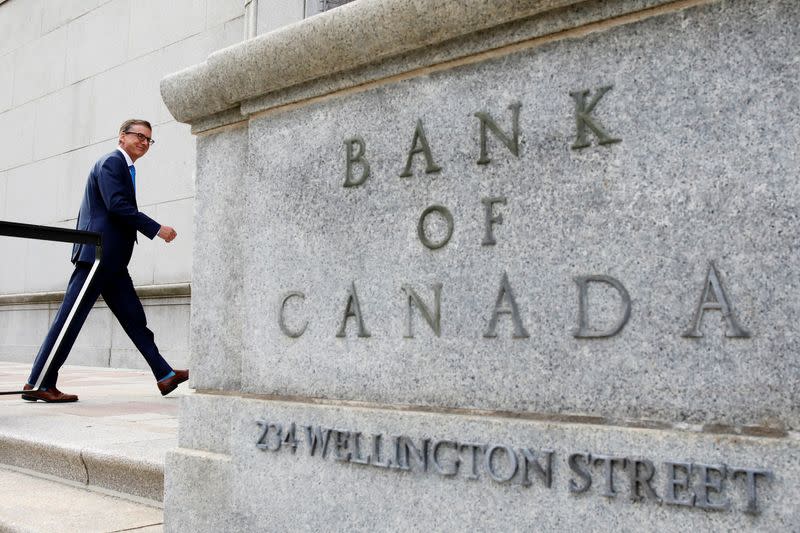Some Bank of Canada governors saw likely need for higher rates -minutes

By Steve Scherer and David Ljunggren
OTTAWA (Reuters) - Some members of the Bank of Canada's (BoC) policy-setting governing council saw the likely need for further interest-rate hikes when they left borrowing costs on hold on Oct. 25, minutes published on Wednesday showed.
The six council members reached a "strong consensus" to leave rates at a 22-year high of 5.00% to collect more evidence that growth and inflation were slowing, the minutes said.
The BoC sets rates by consensus. The bank began providing minutes of the discussions this year and this is the first time they have shown a possible policy split within the council.
"Some members felt that it was more likely than not that the policy rate would need to increase further to return inflation to target," the minutes read, without giving names. "Others viewed the most likely scenario as one where a 5% policy rate would be sufficient to get inflation back to the 2% target, provided it was maintained at that level for long enough."
The council decided to be "patient" and leave rates on hold. It would revisit the need for a hike in the future with the benefit of more information, the minutes said.
Royce Mendes, head of macro strategy at Desjardins, said the most newsworthy aspect was the suggestion of a degree of disagreement amongst policymakers.
"There's a faction that could begin pushing for further tightening should the economy and inflation not cooperate," he said in a note.
"Our view continues to be that the monetary tightening already in place will have enough of an impact on the economy to drag inflationary pressures lower in the months to come," he said.
Since the rate announcement, data showed that the economy stalled in August and likely slipped into a shallow recession in the third quarter. Higher oil prices, another concern of the central bank last month, have retreated.
The BoC in October said the path to avoid a recession had narrowed, and it left the door open to more hikes.
"It sounds like inflation will either break more convincingly, or the Bank will be willing go back to the rate-hike well. We still think the former plays out," said Robert Kavcic, senior economist at BMO Economics.
The bank wants to cool the economy just enough to bring down inflation, but it does not want to jack up rates too high and trigger a deep recession.
The bank increased rates 10 times between March 2022 and this July, with inflation peaking at more than 8% last year. Inflation in September was 3.8%, but the BoC says it will not come down to target until end-2025.
While the council seemed to lean to the hawkish side, Macklem in a CBC interview on Oct 25 said that rates may be at their peak. The minutes reveal there was concern the economy could slow more than expected.
(Reporting by Steve Schere and David Ljunggren; Editing by Mark Porter)

 Yahoo Finance
Yahoo Finance 